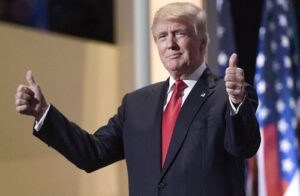
MONITORING (SW) – Zalmay Khalilzad, top U.S. Envoy for Afghanistan, has clarified Washington is seeking a peace agreement and not an agreement to withdraw its troops from war-ravaged Afghanistan.
Speaking at the US Institute for Peace (USIP) on Friday, Khalilzad said it would be best for Afghanistan if a peace agreement is reached before the elections, which are scheduled for July. He expressed cautious optimism, but warned that there is “a lot of work” to do still.
"My overall goal is, at the direction of the president of the secretary of state, not to seek out withdrawal agreement, but the peace agreement. Because peace agreement can allow withdrawal. It is not just the withdrawal agreement that we are seeking," Khalilzad said.
The U.S. Envoy said Pakistan released Mullah Biradar on his demand, who is a pro-peace leader among the Taliban. “The roots of the conflict in Afghanistan is not only in Afghanistan but also in the broader region. I have said to the regional players that we seek their cooperation, their participation, their facilitation to assist Afghanistan to come to the peace table and to make an honorable, just peace with each other,” he said.
Khalilzad said that he has talked to all the neighbours of Afghanistan, perhaps the exception of one or two, but they have not yet agreed on a formal framework for regional participation. “There is a number of regional initiatives that are out there. We look forward to coming to some understanding on the shape of a regional or a gathering that could facilitate and participate in the finalization of the peace agreement," he said.
"But we don't have to wait until then for regional players to play a positive role. They can already play a positive role," he added.
Khalilzad said agreement in principle has indeed been reached with the Taliban on a framework that would provide guarantees, and enforcement mechanism that no terrorist group, international terrorist group or individuals would be able to use Afghanistan, the areas that they control and should they be part of a future government; against the United States as allies and others.
The Afghans, he asserted, must sit across the table with each other and come to an agreement about their future of their country.
“All sides tell me that I've talked to that they've learned lessons from the past. That previous governments whether it was a Taliban government or others that dominated Afghanistan and impose its a unique vision by force on others have been a failure. So, the time has come, they say for an inclusive dialogue leading to an inclusive piece,” he said.
Noting that Afghanistan today was very different than the Afghanistan of 19 years ago, Khalilzad said that it's a different country and it will take time for the Taliban perhaps to appreciate that. “But the message that they have given me is that they understand that they cannot go back. We don't trust the words of any of the protagonists as such anywhere, but we will do what we can to facilitate it. We would be helpful and be watchful,” he said.
He acknowledged there is reluctance on the side of the Taliban to sit down with the Afghan government to negotiate the future, he expressed hope that he will dedicate his time to help overcome that challenge.
ENDS





